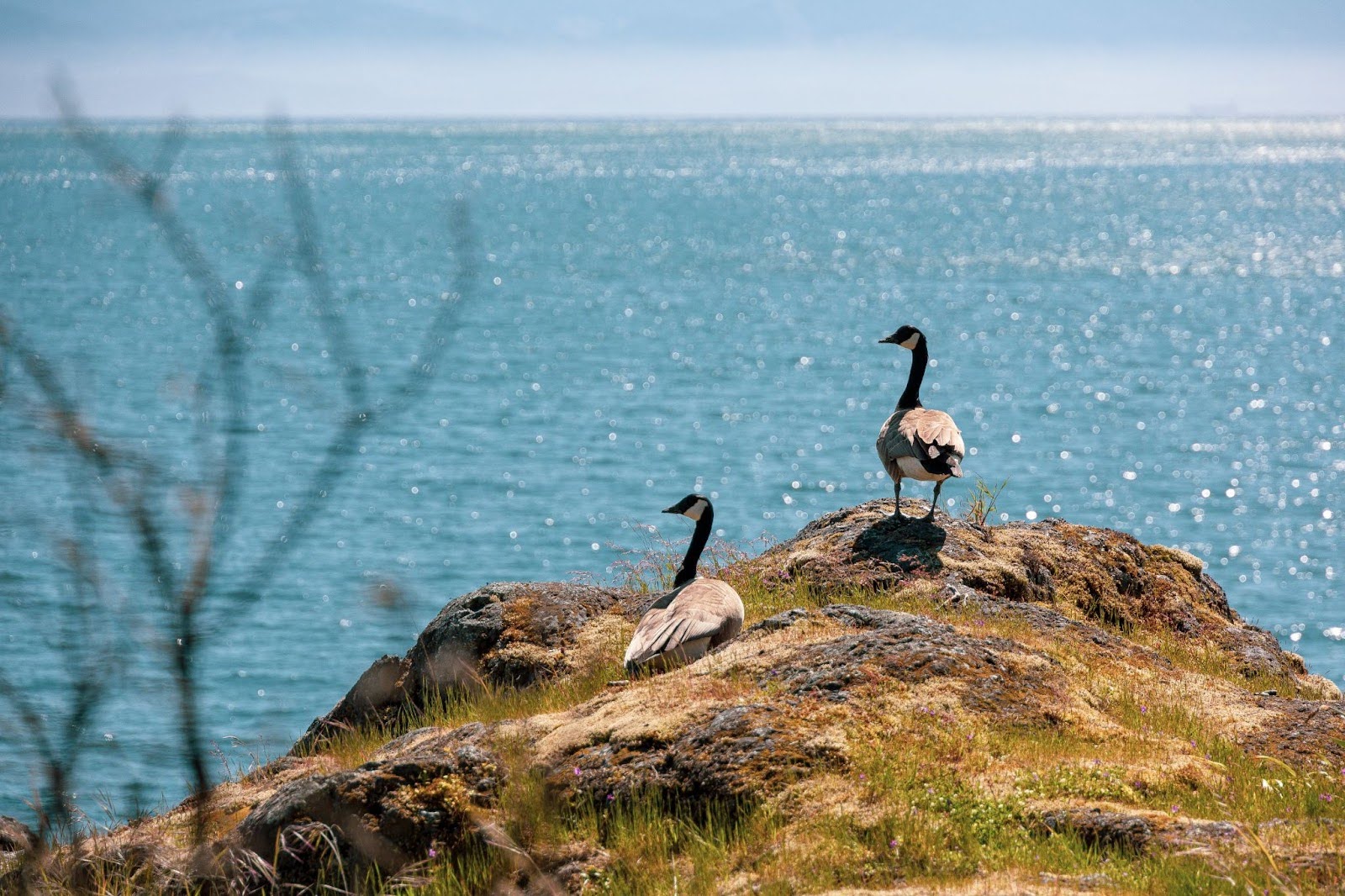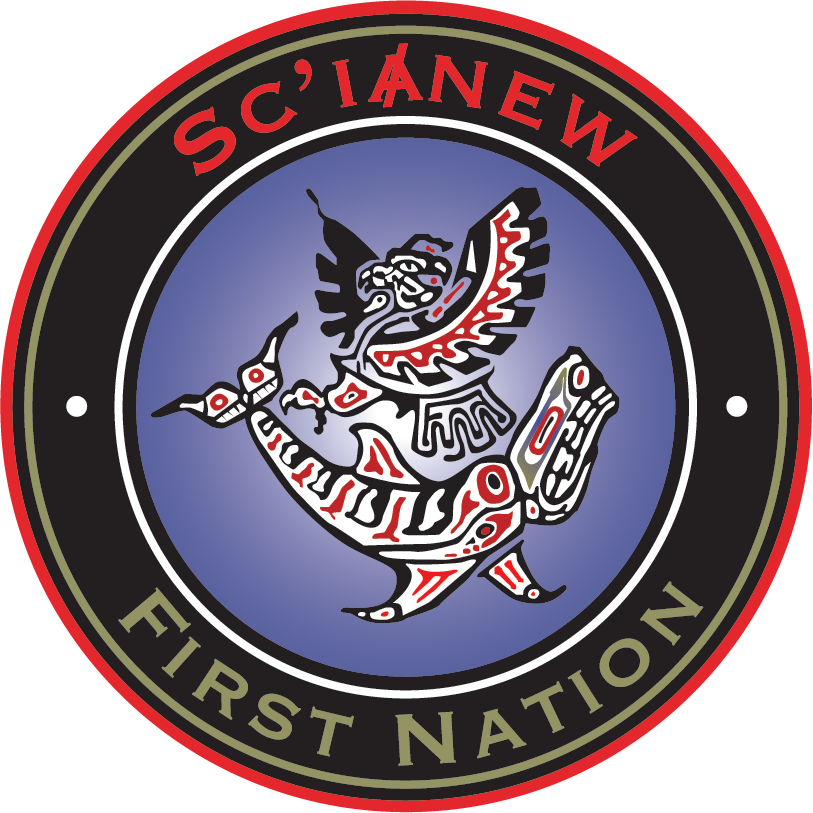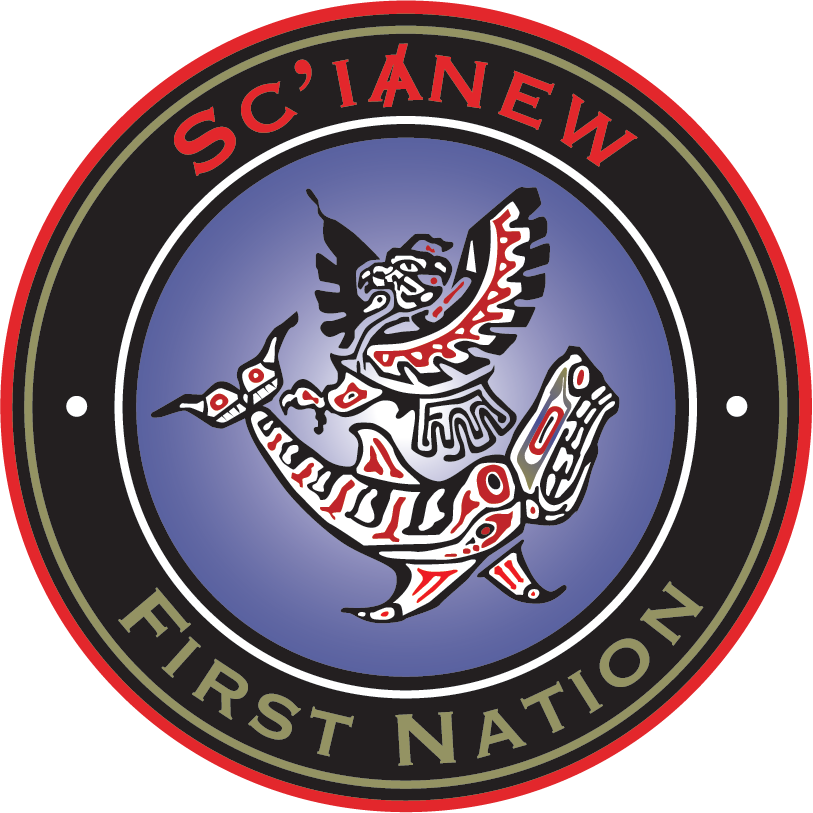In February, SC’IȺNEW’s Ocean Resources Department joined Western Canada Marine Response Corporation (WCMRC) and several other organizations for an oil-spill response exercise that allowed the team to practice applying oil-spill response skills in a simulated environment.

SC’IȺNEW Ocean Resources Department is a nine-member team tasked with monitoring and protecting SC’IȺNEW’s marine environment and keeping community members safe. They are one of the most successful marine protection teams in the region, with a track record of proactively training to address emergencies and developing new ways to care for marine life. During the recent oil spill response exercise hosted by WCMRC, the Department had the opportunity to put its skills to the test by enacting how it would respond to a real-life oil spill.
In what can be thought of as the “fire drill” of oil spills, the WCMRC exercise brings together leaders from all of the governmental, First Nations, and third-party organizations and communities who would be affected by an oil spill to practice response protocols in real time. The two-day exercise took place in Victoria on February 4th and 5th, 2025 and was designed to simulate a real oil spill scenario as closely as possible. The exercise centered around a mock oil spill at the Brotchie Pilot Boarding area in the Juan de Fuca Strait.
During the exercise, the players practiced carrying out the internationally standardized Incident Command System to respond to the mock spill. While an Incident Command System generally places a single person as the “Incident Commander,” in large incidents like oil spills that affect multiple jurisdictions, several Incident Commanders from various affected parties come together to form a Unified Command.
SC’IȺNEW’s Ocean Resources Manager Michael Campbell sat as the Incident Commander for SC’IȺNEW, working alongside the other Incident Commanders – including the Emergency Management Coordinator for the City of Victoria – in Unified Command. Together, the Unified Command set goals, defined standards, and made decisions. As the Incident Commander for SC’IȺNEW, Campbell served as the voice and advocate for SC’IȺNEW’s interests, ensuring SC’IȺNEW’s objectives and goals were considered at every turn.
SC’IȺNEW’s Ocean Resources Marine Liaison Officer Tim Charles also participated in the exercise, playing a role on the Operations Team. In that role, Charles helped create instant action plans for the crews who would address the oil spill on the water.
While the exercise is a requirement WCMRC must complete to maintain its Transport Canada certification as a marine spill response organization, it provides real benefits to all the participants. SC’IȺNEW, for example, had the rare opportunity to put its extensive emergency-response training into action. As Campbell said, “I’ve been doing this training for a number of years now, but every exercise we do is a major opportunity to practice everything we’ve been learning and training on for so many years in as close to a real situation as we can.” He added, “It’s good to get the experience we need before a real-world incident happens because, at the end of the day, it’s not so much if it happens, but when it happens.”
The exercise also provided an opportunity for the key players who would respond to an oil spill to get to know one another. Now, if a real oil spill happens, Campbell shared, “we know exactly who we’re going to be working with and who is going to be sitting at the table with us. We won’t be meeting them at 3AM when the oil hits the water.”
SC’IȺNEW not only met those who would be at the table, but learned there are many allies among them. In Campbell’s words, “I was pleasantly surprised at the collaboration for the entire exercise. There were so many outside organizations willing to work with us and help our Nation meet our needs.”
Participation in this exercise is just one of the many ways SC’IȺNEW demonstrates its commitment to preventing oil spills and preserving the environment. One of the largest demonstrations of this commitment is the recent partnership between SC’IȺNEW and WCMRC that brought an oil spill response centre to Cheanuh Marina and placed SC’IȺNEW at the center of oil spill response in the area.
In an interview for TransMountain, Chief Russ Chipps described this decision as a marker of SC’IȺNEW’s commitment to oil-spill prevention, saying:
We didn’t want to be the community that was sitting around waiting for change to happen in our own community. We wanted to be out there first. We wanted to be fins in the water. We wanted to be the first phone call when there was an accident. The only way to do that was to not accept what’s going on, but to participate in what’s going on as an equal partner.
SC’IȺNEW is grateful for the opportunity to engage in this exercise with WCMRC, the Canadian Coast Guard, and all of the other communities and organizations that participated, and looks forward to continuing to take every opportunity to support its work as a leader in oil-spill protection. To stay up to date on all of the ways SC’IȺNEW is working to keep the community and the environment safe, be sure to sign up for the SC’IȺNEW newsletter.

